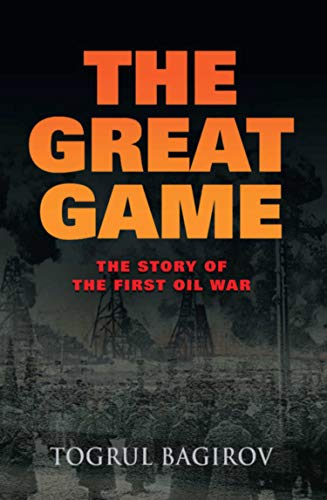The Great Game: The Story of the First Oil War
The Great Game is a fictionalized account of the Nobels—brothers Robert, Alfred, and Ludvig, and Ludvig’s son Emanuel—innovators and relentless competitors who revolutionized oil development and established the Nobel Prize.
The story opens in 1876 with Emanuel and Ludvig arriving in Baku, Azerbaijan, a town soaked in oil spewing from derricks. Repulsed by the waste and filth, Ludvig invents modifications to oil extraction, refining, and shipping processes and provides workers with housing, education, and medical care.
The editor’s foreword describes the book as “a historical novel—with the emphasis being on ‘historical.’” I agree. History is its strength.
This fascinating account features international competition, espionage, sabotage, and the rise of the Bolsheviks and the Russian Revolution. Unfortunately, it opens with an irrelevant subplot teaser regarding Emanuel’s love affair. The writing is riddled with first-draft clichés: “Crossing his arms over his chest, he lifted his chin and stubbornly refused to enjoy himself.” The dialogue is stilted: “Shall I tell you, son, that I was impressed by your work ethic? And because of that difficult job, you learned early on about the satisfaction that can be derived from hard work.” Even Julie Gold, a smart, young, daring spy and double agent with ninja-like street-fighting skills, says things like, “Could I have lived a simple life? Content with a husband, children, and a day-to-day existence which involved neither clandestine adventures nor bloodshed?”
In his unabashed homage to the Nobels, the late scholar Togrul Bagirov provided intriguing setting, action, and historical references. So, yes, the historian put the emphasis of his historical novel on historical. Had the editor put an equal emphasis on novel, this story could have been a riveting read.










